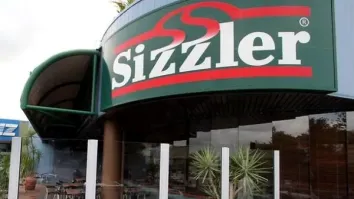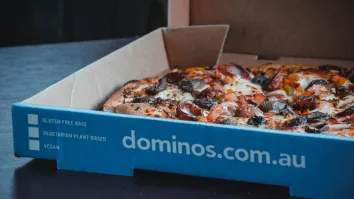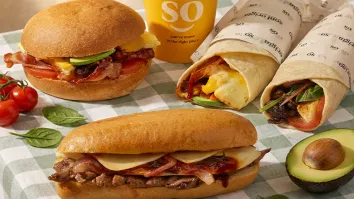Here's how QSRs can rev up their marketing platform
By Paola TannerWhen we talk about QSR chains, the consistency and strength of a brand is one of the key ingredients for the success of a business. Growing brand awareness is about customer’s perception and engagement, standardising consumer experiences and maintaining control while growing.
The same way a sandwich needs to be the same in Broome and in Adelaide if sold by the same brand, a local promotion needs to equally represent the brand in all aspects -quality of material, artwork that follows guidelines, brand positioning, key messages, etc.
In order to keep brand compliance, it is important that not only franchisees but a chain’s suppliers and staff understand the brand and its objectives to help drive it forward.
To this end, franchisors can ensure brand integrity by using processes and systems that support franchisees to organize their own marketing initiatives.
QSR chains have the challenge of small transaction values and the need for high volume to achieve revenue targets. This puts pressure on every marketing campaign to be efficient.
Franchisees or outlets leverage brand awareness that QSR brands cultivate, however, it remains true that the most successful outlets tend to be the ones that are proactive in doing their own local marketing in their territory.
This calls on the need for franchisees or outlets to work together with their head office marketing team on local area marketing.
Initiatives to encourage franchisees to promote their business locally can include:
• Provide franchisees with an easy to understand marketing plan template or lead them through creating one for their business
• Give them access to online tools to organise their marketing
• Offer a subsidy to encourage franchisees to undertake local activities
• Allow franchisees to ‘piggyback’ national promotions to gain economies of scale
• Provide franchisees with local area marketing case studies
• Set the standards and expectations in advance
• Encourage franchisees to seize opportunities to reinforce the brand messaging at a local level
• Reward proactive franchisees
• Educate franchisees on how to calculate ROI for their marketing, to measure the benefits of their efforts.
Every QSR chain has different expectations around what franchisees or store managers are responsible for and what they should be doing to protect and promote the brand.
Regardless of what the actual expectations are, it is important to set the standards up front and ensure they are clear at all levels.
One way to communicate these expectations is to have a framework that defines what is below expectations, what is standard and what it means to go above and beyond.
The framework below is set as an example, depending on the independence you give your franchisees or managers and the dynamics of your system.

Have a go at setting up your marketing standards in a table similar to the one shown above.
Tips:
• Think about what you don’t want stores to do in the different areas and include these actions on the list. For example: don’t use suppliers who are not approved by the marketing team.
• When setting up your standards framework, make sure the mid level is at reach of 80% of your stores.
• The top level should be achievable but should leave room for improvement for your high achievers to step up, they need to be challenged as part of this process. After all, you are not trying to generate a chain of average standard but motivate and help your stores to turn into high achievers.
This is a basic exercise but it will provide some clarity and accountability across the QSR chain in a practical format that stores will find easy to understand.
The standards framework is a great foundation to then implement reward programs, subsidies, support systems and all other infrastructure that a chain needs to have healthy marketing operations.
Once the expectations are set, it is important to provide stores with the right tools to develop their own initiatives. Ideally your marketing will be supported by a marketing platform for growth which includes:
• Feedback and ideas forum – easy to access communication channels
• Tools to deal with marketing issues
• Expectations and standards framework
• Access to drivers for national and local marketing
• Rewards and subsidies to promote individual initiatives
• Culture of trial and case studies
This commentary only looks at the execution side of marketing, all the standard strategic marketing activities will feed into the platform such as research, PR, product development, creative, etc.
Having the right marketing platform will provide the infrastructure required to execute marketing at national and local levels, and engage the teams on the ground.

























